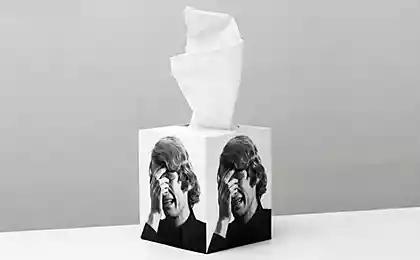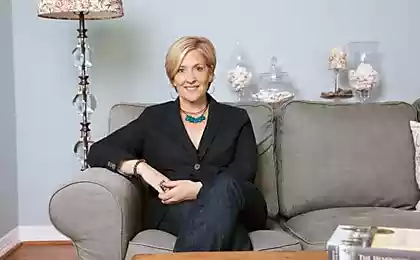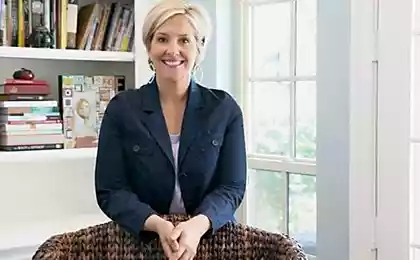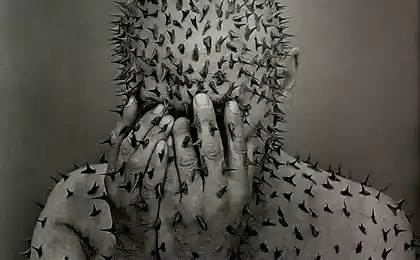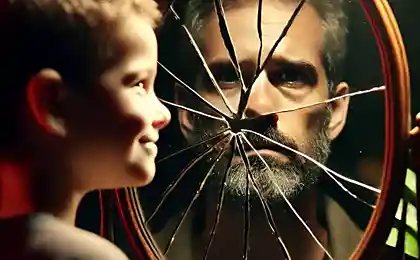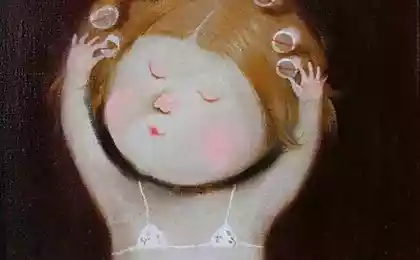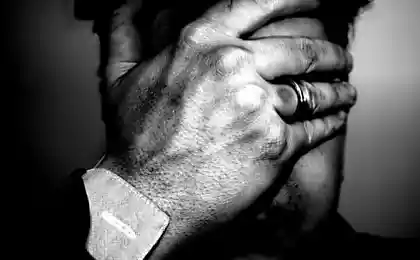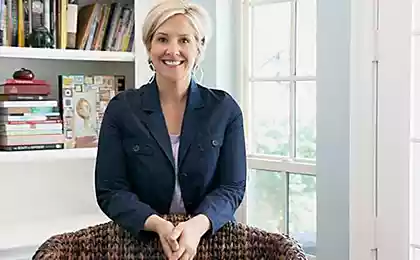500
12 areas of shame
If you remember the "12 areas of shame" (appearance, money and work, parenting, family, education, mental and physical health, addiction, sex, aging, religion, experience of trauma, stereotyping), then the primary factor for a woman, from the point of view of its power and versatility, is the first: appearance.
That's it! Even with the increasing awareness and application of critical thinking, we still feel shame, if we feel not thin, young or pretty.

Interestingly, among the factors that provoke feelings of shame in women, motherhood is in second place. And (bonus!) you do not have to be a mother to experience mother's shame.
The society believes that a woman's nature implies motherhood, and therefore our value as women is often defined by our role as mothers or as potential mothers.
Women constantly ask why they are not married or if they married, why they have children. Even those women who are married and already have one child are often asked why they do not give birth second.
If you keep your distance with children, you ask: "what do you think?" If you are too close to them, it will ask you: "Why?" If you go to work, the first question: "what about the children?" If you don't work, you will certainly notice: "What kind of example are you setting for your daughters?" A mother's shame haunts women throughout their lives.
In addition, for women a real challenge, reinforcing the sense of shame, is that social expectations require them to be perfect. And another thing is important: you need to make it seem as if women do not make any effort.
Women want to realize this expectation. Everything must come easy. The expectation is that women should be natural – beauty, motherhood, leadership and as a result, they tend to naturally beautiful families.
Think about how much money is earned by selling products that promise "the natural look". And we all love to hear: "it all so simple" or "it is natural, It's real." I met a huge number of definitions and examples that brought women in our conversations, and found that all of this is woven into a dense web.
It is a complex web of conflicting expectations that dictate:
This is because every choice has consequences and leads to the fact that at least someone, but sure to be disappointed. The web is a metaphor for the classic situation of "double trap".
Marilyn Frye describes double trap as "a situation in which a choice is reduced to a minimum, thus each alternative leads to punishment, censorship or restriction to the Essentials".
If you take the competing and conflicting expectations (which are often unattainable from the beginning),we get the following.
We have to be quiet, discreet, modest and lovely and use your time and talent to look beautiful. Our dreams, ambitions and desires are not important. God forbid that some young girl who wanted to find a cure for cancer, read this list and decided to stick with it. If it does, we'll never know about its brilliance – I'm sure.
Why? Because every successful woman I talked to told me about the daily struggle against "the rules" in order to assert themselves, to speak up for their ideas and being clothed with the power to feel comfortable.
For me now the problem is "to be silent, modest, imperceptible and charming" sounds irrelevant and seems outdated, but women are still faced with these demands when they want to have their voice heard.
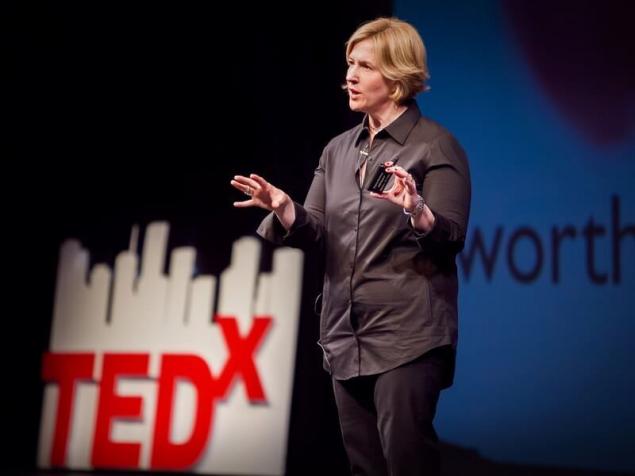
When the video from the TED conference-Houston aired, I wanted to die. I asked my husband Steve to hack the site and TED "kill it live". I wanted to break into the office, where he kept the videos, and to steal it. I was in despair. It was then that I realized that subconsciously tried throughout his life to make their work invisible.
I liked writing for a small community of readers, because it was easy and relatively safe. Popularity was exactly what I always tried to avoid. I didn't want "to seem", and I was terrified of criticism that is so pervasive in Internet culture. Most of it was aimed at the strengthening of the norms of the series "sit silently".
When a news program posted a video on its website, in the "Comments" broke out a heated debate (of course!) about my weight. "How can she talk about self-respect, when she clearly needs to lose weight?" On another site it exploded in a discussion about the relevance of failure in mothers. "I feel for her children. Good mother held my hands."
Something similar happened when I wrote an article about imperfection. To accompany the article, the editor used a photo of my good friend, whose on the shirt in the chest area was written: "I am self-sufficient person". This is a great photo that hangs in my office as a reminder. Of course, photos ensued, with comments like: "She may believe that she is self-sufficient and full, but her chest is not enough" and "If I looked like brené brown, I would have thought about the imperfection".
I know these examples are symptoms of violence in modern culture, in which everyone supposedly stands for honesty, but think about human attacks: the attacks have in the first place on appearance and motherhood. After all, they didn't even try to offend my intelligence or my arguments because it did not hurt me too much.
Thus, these social norms do not become outdated. And shame contributes to their strengthening. And that's a reminder of why resistance to shame is a necessary condition for the vulnerability.
I believe that my TED talk in Houston has become a great adventure. The story about his own difficulties, became for me a manifestation of courage, given my desire for constant self-protection and use for this entire Arsenal of my research.And the only reason I did not give up (and do write that book), that I developed some pretty hard skills to stylostixis.
I do remember that these comments caused me shame, and I was quickly able to match it with reality. Yes, I was hurt. Yes, I was angry. Yes, I cried. Yes, I wanted to disappear. But I allowed myself to feel it all within a few hours or days, and then I asked for help to people that you trust, that love, I told them about their experiences and began to move on. I felt more courageous, more compassionate, more connected with other people. (I also stopped reading anonymous comments. If you are "in the arena" with us, I'm not interested in feedback.)published
From the book by brene brown "the Great adventure"
P. S. And remember, only by changing their consumption — together we change the world! ©
Source: vk.com/wall-99950428?offset=80&own=1&w=wall-99950428_126
That's it! Even with the increasing awareness and application of critical thinking, we still feel shame, if we feel not thin, young or pretty.

Interestingly, among the factors that provoke feelings of shame in women, motherhood is in second place. And (bonus!) you do not have to be a mother to experience mother's shame.
The society believes that a woman's nature implies motherhood, and therefore our value as women is often defined by our role as mothers or as potential mothers.
Women constantly ask why they are not married or if they married, why they have children. Even those women who are married and already have one child are often asked why they do not give birth second.
If you keep your distance with children, you ask: "what do you think?" If you are too close to them, it will ask you: "Why?" If you go to work, the first question: "what about the children?" If you don't work, you will certainly notice: "What kind of example are you setting for your daughters?" A mother's shame haunts women throughout their lives.
In addition, for women a real challenge, reinforcing the sense of shame, is that social expectations require them to be perfect. And another thing is important: you need to make it seem as if women do not make any effort.
Women want to realize this expectation. Everything must come easy. The expectation is that women should be natural – beauty, motherhood, leadership and as a result, they tend to naturally beautiful families.
Think about how much money is earned by selling products that promise "the natural look". And we all love to hear: "it all so simple" or "it is natural, It's real." I met a huge number of definitions and examples that brought women in our conversations, and found that all of this is woven into a dense web.
It is a complex web of conflicting expectations that dictate:
- what we should be;
- what we should be;
- how to achieve this.
This is because every choice has consequences and leads to the fact that at least someone, but sure to be disappointed. The web is a metaphor for the classic situation of "double trap".
Marilyn Frye describes double trap as "a situation in which a choice is reduced to a minimum, thus each alternative leads to punishment, censorship or restriction to the Essentials".
If you take the competing and conflicting expectations (which are often unattainable from the beginning),we get the following.
- Be perfect but do not make a noise about this. To achieve perfection, do not take the time with your family, partner or work. If you're really good, perfection should be easy.
- Anyone do not upset and do not hurt, but say what you think.
- Unleash your sexuality (after we put the kids to bed, walk the dog and clean the house), but do it when you are rested and have free time.
- Just be yourself, but don't be shy or insecure. There's nothing sexier than self-confidence (especially if you are young and beautiful).
- Don't make people feel uncomfortable, but be honest.
- Don't be too emotional, but not too impermeable. Excessive emotionality makes you hysterical and excessive tightness heartless.
We have to be quiet, discreet, modest and lovely and use your time and talent to look beautiful. Our dreams, ambitions and desires are not important. God forbid that some young girl who wanted to find a cure for cancer, read this list and decided to stick with it. If it does, we'll never know about its brilliance – I'm sure.
Why? Because every successful woman I talked to told me about the daily struggle against "the rules" in order to assert themselves, to speak up for their ideas and being clothed with the power to feel comfortable.
For me now the problem is "to be silent, modest, imperceptible and charming" sounds irrelevant and seems outdated, but women are still faced with these demands when they want to have their voice heard.

When the video from the TED conference-Houston aired, I wanted to die. I asked my husband Steve to hack the site and TED "kill it live". I wanted to break into the office, where he kept the videos, and to steal it. I was in despair. It was then that I realized that subconsciously tried throughout his life to make their work invisible.
I liked writing for a small community of readers, because it was easy and relatively safe. Popularity was exactly what I always tried to avoid. I didn't want "to seem", and I was terrified of criticism that is so pervasive in Internet culture. Most of it was aimed at the strengthening of the norms of the series "sit silently".
When a news program posted a video on its website, in the "Comments" broke out a heated debate (of course!) about my weight. "How can she talk about self-respect, when she clearly needs to lose weight?" On another site it exploded in a discussion about the relevance of failure in mothers. "I feel for her children. Good mother held my hands."
Something similar happened when I wrote an article about imperfection. To accompany the article, the editor used a photo of my good friend, whose on the shirt in the chest area was written: "I am self-sufficient person". This is a great photo that hangs in my office as a reminder. Of course, photos ensued, with comments like: "She may believe that she is self-sufficient and full, but her chest is not enough" and "If I looked like brené brown, I would have thought about the imperfection".
I know these examples are symptoms of violence in modern culture, in which everyone supposedly stands for honesty, but think about human attacks: the attacks have in the first place on appearance and motherhood. After all, they didn't even try to offend my intelligence or my arguments because it did not hurt me too much.
Thus, these social norms do not become outdated. And shame contributes to their strengthening. And that's a reminder of why resistance to shame is a necessary condition for the vulnerability.
I believe that my TED talk in Houston has become a great adventure. The story about his own difficulties, became for me a manifestation of courage, given my desire for constant self-protection and use for this entire Arsenal of my research.And the only reason I did not give up (and do write that book), that I developed some pretty hard skills to stylostixis.
I do remember that these comments caused me shame, and I was quickly able to match it with reality. Yes, I was hurt. Yes, I was angry. Yes, I cried. Yes, I wanted to disappear. But I allowed myself to feel it all within a few hours or days, and then I asked for help to people that you trust, that love, I told them about their experiences and began to move on. I felt more courageous, more compassionate, more connected with other people. (I also stopped reading anonymous comments. If you are "in the arena" with us, I'm not interested in feedback.)published
From the book by brene brown "the Great adventure"
P. S. And remember, only by changing their consumption — together we change the world! ©
Source: vk.com/wall-99950428?offset=80&own=1&w=wall-99950428_126
The tapping of the thymus and 7 anti-aging exercises for glands
Don't waste energy on little things...


